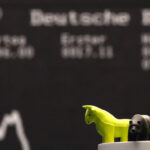The calm following early August’s volatility and unwinding may soon come to an end with Friday’s much-anticipated nonfarm payrolls (NFP) report.
According to Citi strategists, the print is expected to be “binary,” as a weak number could rekindle hard-landing concerns, while a strong report “may see the market chalk up July’s weakness to weather or other one-off effects and increase soft-landing positioning.”
The bank projects the unemployment rate to rise to 4.3%, with payrolls coming in at 125,000, a level they believe could support a 50 basis point cut from the Fed.
Analyzing potential scenarios ahead of the release, Citi closely focused on the asymmetry in market positioning.
Both equity and fixed income positioning have been in decline, yet Citi believes investors are still positioned for a soft landing, as many remain broadly overweight in equities.
At the same time, investors are also positioned for an aggressive Federal Reserve easing cycle, shown by their overweight exposure to fixed income (excluding Japan), including US Treasuries. Other consensus trades include long XAU/USD and long USD, the bank notes.
“Long equity positioning is vulnerable to hard-landing fears,” strategists wrote in a Thursday note. “However, duration overweights and aggressive easing cycle pricing mean a hard-landing rally may be sharp yet capped with a steepening bias.”
Regionally, the US remains the favored trade in terms of equity positioning, while investors hold short positions in China and Eurostoxx.
Meanwhile, precious metals, particularly gold and silver, appear overstretched, and energy positioning has shifted to the short side.
In terms of price action, Citi strategists said a weak set of numbers would likely trigger a market response similar to August. Although a repeat shock may have less impact, markets have already priced out much of the initial reaction, making them vulnerable to bad news from the NFP report.
In August, the fallout affected global equities, particularly Japan, widened credit spreads, spiked the VIX, strengthened US Treasuries and the Japanese Government Bonds, and weakened the dollar index. The most notable recoveries since then have been in credit, broader equities, and the VIX.




